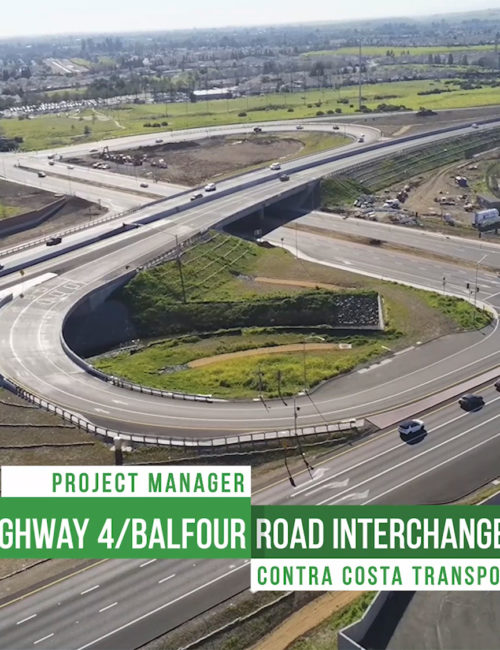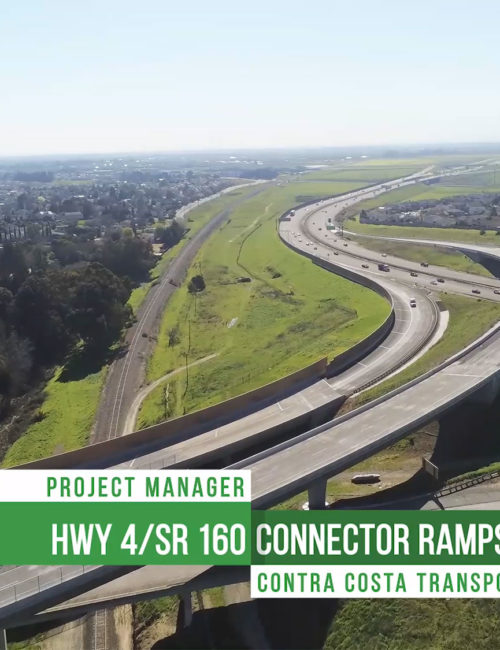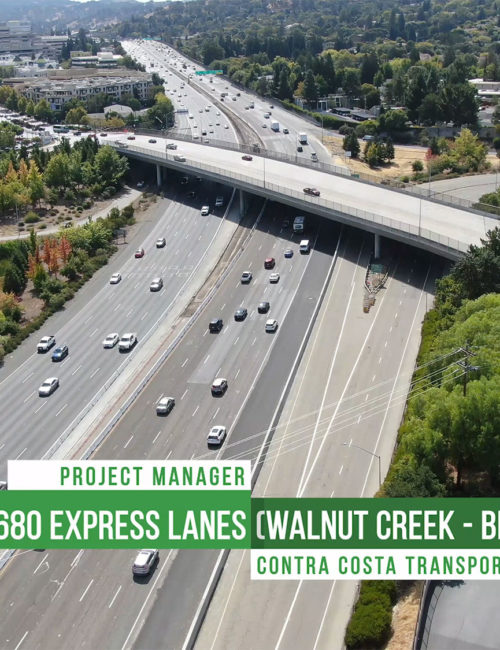The Hillcrest Avenue segment of Highway 4 improvements was undertaken to widen the highway from four to eight lanes, with three mixed flow lanes, one High Occupancy Vehicle (HOV) lane, and the first phase of Antioch eBART Station east of Hillcrest Avenue. Construction on this $56.1 million project, completed in February 2017, included a new westbound loop on-ramp, opening the westbound SR4 mainline to full capacity between the SR 4/SR 160 connector ramp and A Street/ Lone Tree Way, opening the eastbound SR 4 freeway to full capacity between Cavallo Road and the SR 4/SR 160 connector ramp, opening the westbound SR 4 on-ramp, and opening Hillcrest Avenue to full capacity.
Beginning when the project was 50% complete, CME managed the project financial plan to completion and developed and maintained the Project Management Plan which included scope, costs, schedule, risks. CME also led the resolution of unsatisfactory work at the eBart Station assisting with negotiations between subcontractor and owner regarding architectural concrete at the new Antioch eBart Station. CME also reviewed and assisted in the resolution of a claim filed with the proposed final estimate that occurred prior to CME’s engagement on the project, which averted a lawsuit and allowed the Proposed Final Estimate to be processed. CME also oversaw and directed the work of the construction management consultant to ensure the timely completion of the project with the contractor.
The project will widen Highway 4 from four to six lanes, eliminate the current eastbound lane drop on Highway 4 west of the Pacheco Boulevard interchange, and construct auxiliary lanes to the interchange ramps at Morello Avenue and Solano Way on Highway 4, and Pacheco Boulevard and Concord Avenue on I-680. The initial construction phase, which began in January 2019, involves widening a 4-mile segment of SR 4 in both directions between Morello Avenue in Martinez and SR 242 and replacing the Grayson Creek Bridge to bring it up to current State bridge safety codes. Construction cost for the first phase is approximately $95 million.
On behalf of CCTA, CME prepared the General Specifications for the project including the Bid Book and managed the advertisement and bid process for the construction contract. Additionally, CME developed and is maintaining a detailed financial plan for the project in real-time through Clarizen, the construction program’s project control system.
When there was a bid protest, CME played a key role in resolving a protest to award the contract. The low bidder claimed they made an inadvertent bid error when they failed to list the percentage of work for a subcontractor in the “Listing of Subcontractors” portion of their bid. CME simulated what the bidder would have seen when they went to submit their bid using Camtasia (screen capture software) and provided a voice-over narration to explain to the viewer what was happening. This video and a detailed presentation, also prepared with the assistance of CME, were presented to the Board to help them determine who should be awarded the contract.



